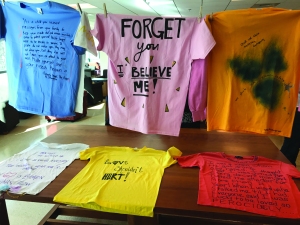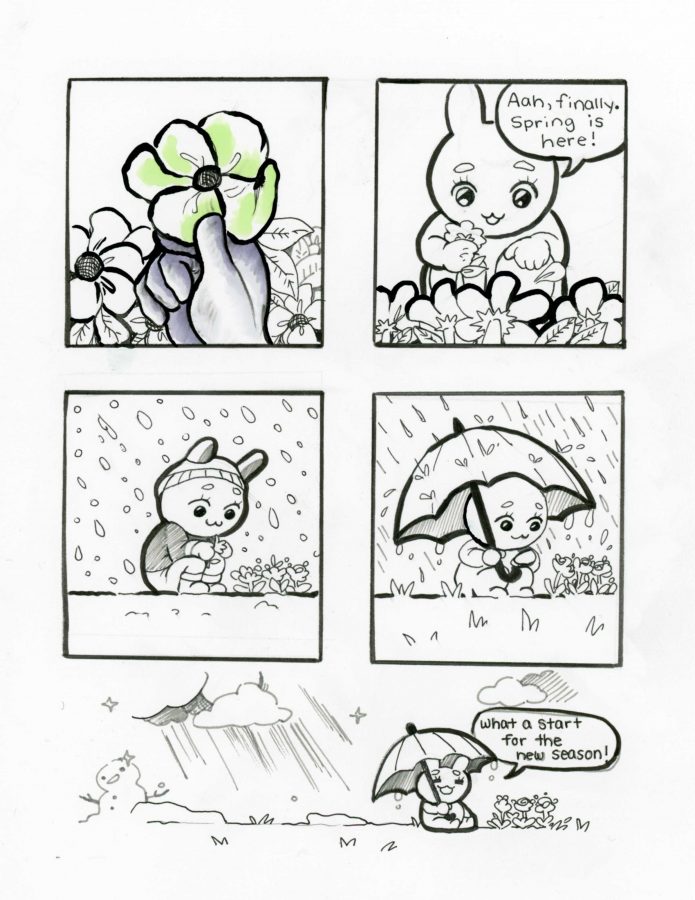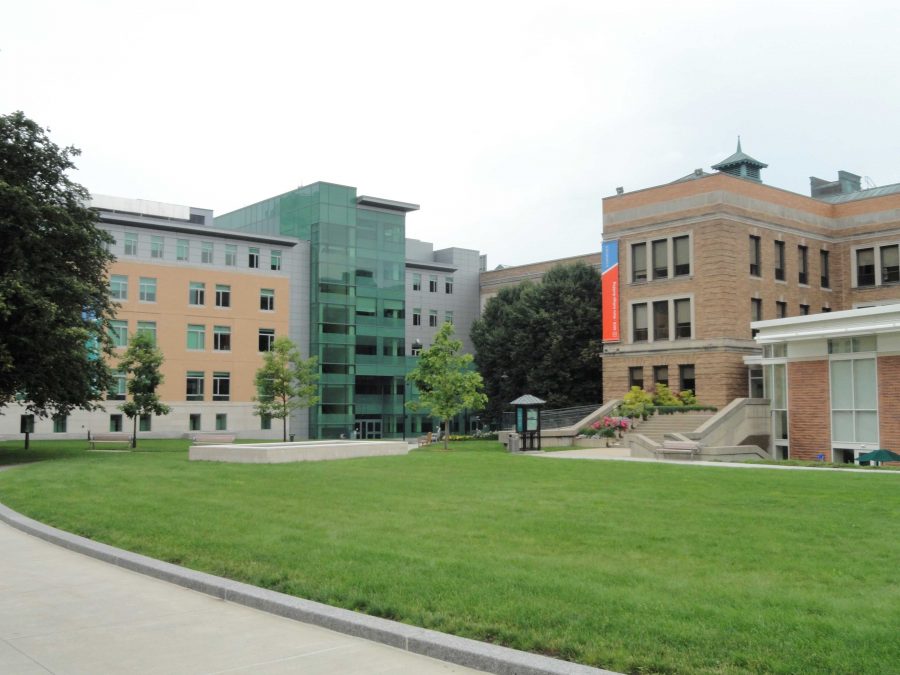By Ellen Garnett
Staff Writer
*CW: domestic violence
Last week, the Simmons community came together to recognize the 20th anniversary of the Clothesline Project, a program in memory of Simmons alumna Elizabeth “Betsy” McCandless, who lost her life to domestic violence.

The project, which came to Simmons in 1993 with the help of the Betsy McCandless Memorial Fund, encourages people affected by domestic violence to “hang out the laundry” by sharing their experiences through decorated t-shirts. Since its inception, the Clothesline Project at Simmons generated 219 shirts, and 24 new shirts were added this year, a record high.
There are several colors representing survivors and victims of various abuse: yellow/brown is for survivors of abuse, red/pink/orange is for survivors of sexual assault, blue/green is for survivors of incest or child abuse, purple is for survivors of homophobia or transphobia, and white is for those who have lost their lives to violence.
Kaitlyn Maloney, a senior and member of Betsy’s Friends Peer Education Group at Simmons, shared Betsy’s story. She quoted Betsy’s brother, Steve McCandless, who is an integral funder of the project.
“This is a story about fear, about violence and death, but this is also a story about friendship, bravery, determination and love,” said Maloney, quoting Steve McCandless.
During her time at Simmons, Betsy studied psychology and received her bachelor’s degree in 1971. Her friends remembered her as a “fun-loving and upbeat person with a fantastic sense of humor.” She was an active member in her community.
After leaving Simmons, Betsy earned a graduate degree from Northeastern University and launched her career as a systems engineer for a number of software companies. In 1991, she joined a small intelligence company in the North End of Boston. Betsy was 42 and had never married, but later that year, luck had it that she met the man who she would marry. Three months after they met, they fell in love and got married.
Betsy soon found herself in an abusive relationship. Her husband controlled every aspect of her life and took away her freedom. He manipulated her by isolating her from friends and family, monitoring her phone calls, taking away her car, destroying her personal belongings, and even preventing her from fully performing at her new job.
On July 14, 1992, Betsy escaped her abusive relationship with the help of a friend who walked her to the police station before Betsy’s husband could pick her up. From this point on, Betsy took all of the necessary steps to protect herself. She got a divorce, placed a restraining order, pressed criminal charges, attended survivor support groups, went into hiding, and took self-defense classes. Her brother also hired a private detective to keep tabs on the whereabouts of her ex-husband.
While seeking help, Betsy had an injured self-confidence, yet she remained courageous, drawing upon her sense of humor to give her strength, according to her friends and family. Unfortunately, her ex-husband was too intent on finding her.
On her way home one night from a domestic violence support group, her ex-husband located her and took both of their lives. Betsy’s death was a tragedy that shook the Simmons community to the very roots. The students took action a few months later, in collaboration with her friends and family, to form Betsy’s Peer Education Group at Simmons formed under the Office of Violence Prevention and Education to educate students on domestic violence, intimate partner violence, stalking, and sexual assault.
Today, Betsy’s Friends teaches students about the red flags of dating violence, the cycle of violence Betsy experienced, and healthy relationship practices. The group hosts a variety of events and activities, such as bystander intervention workshops to increase awareness of domestic violence. The Clothesline Project continues to serve as a reminder of the impact of domestic violence, which can affect anyone.
“When I look around this room, and around my dorm room, my classrooms, and the dining halls, I am struck by the sobering thought that any of my peers could find themselves in a situation similar to Betsy’s,” said Maloney.
“Take a moment and understand that each of these t-shirts represents someone who has either directly or indirectly experienced the effects of intimate partner violence, domestic violence, sexual assault, [and] rape, and know that it is up to us to reduce the number of shirts hung each year,” said Maloney.
The Clothesline Project t-shirts are up on display in the Simmons College Archives in the Beatley Library until the end of today.













